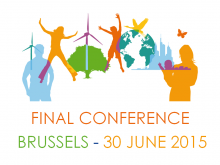Eco innovations (EI) that address climate change mitigation require pressures and knowledge from outside the firm’s and sector’s boundaries, due to the radicalness and variety of techno-organisational knowledge the economy needs to curb emissions by 90 % in the long run and 40 % in the medium run, at least according to EU targets. The role of policy as a tool that potentially tackles two externalities—innovation and environmental market failures—has been studied over the past decade. Sector integration, which is increasingly relevant for understanding the economic, environmental and innovation performances of countries, might additionally influence innovations, and it is relatively overlooked. We integrate these two perspectives to provide evidence on the adoption of EI in EU sectors over 2006–2008. Using past CO2 emission intensity as a proxy of policy stringency we find that emission intensive sectors are more likely to adopt CO2-related eco-innovations. The aforementioned results are valid for both the economy as a whole and for industrial sectors specifically. We additionally show that inter sector integration and knowledge sources matter: we do observe that sectors with more emission intensive upstream ‘partners’ eco-innovate more to reduce their CO2 footprints. The positive and significant effect of upstream emission intensity (supplier’s emission intensity) on EI is actually stronger than the effect of ‘direct’ CO2 emission intensity (policy effect).
This publication can be downloaded from the SpringerLink website.


